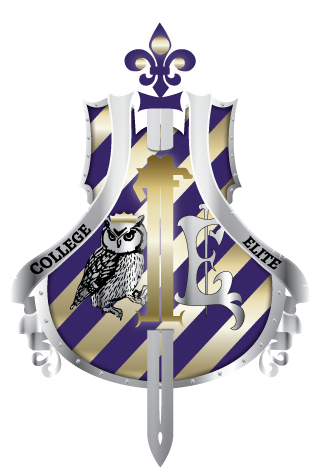How Cutting-Edge Educational Platforms are Shaping Smooth Transitions from High School to College
- College Elite

- Nov 16, 2024
- 4 min read
Transitioning from high school to college can be daunting for many students. This period not only signifies a major change in their academic journey but also brings new responsibilities, social dynamics, and expectations. Luckily, innovative educational platforms and supportive advising systems have emerged to help students navigate this transition with confidence and success.
The Role of Educational Platforms
The education sector has witnessed a surge in platforms aimed at supporting students during this critical transition. These platforms provide essential tools to develop key skills, connect with peers, and obtain guidance from experienced mentors.
For instance, platforms like Khan Academy and Coursera have become invaluable resources. They offer online courses that focus on essential skills like time management and study techniques, which are pivotal for college success. In fact, students using Khan Academy reported improving their grades by an average of 11% after engaging with its resources.
Moreover, many platforms are specifically designed to bridge the gap between high school and college academics. For example, workshops hosted by programs like Academic Success Center provide insights on handling college coursework, effectively interacting with faculty, and balancing academic responsibilities with social activities.
Personalized Advising Systems
Advising is crucial in ensuring students feel supported during their transition. College academic advisors offer personalized guidance that considers each student's unique background and aspirations.
Traditionally, academic advising relied heavily on in-person meetings. However, advancements in technology have made virtual advising increasingly common. For instance, studies show that 78% of students prefer scheduling appointments online or using chat functions to connect with advisors, as this flexibility encourages them to seek assistance when needed.
Additionally, many colleges have embraced a proactive approach to advising. By tracking students' progress, academic advisors can identify potential challenges early. This proactive intervention is vital; research indicates that students who receive timely support are 25% less likely to struggle academically during their first year.
Peer Mentorship Programs
Peer mentorship programs have become a key part of helping students transition effectively. These initiatives connect incoming freshmen with upper-class students who can share their experiences and advice. Fostered relationships create a sense of belonging for new students.
Peer mentors often organize informal gatherings, such as study groups or social events, to help students build their networks beyond academics. For example, a study conducted at the University of California found that 82% of first-year students who participated in peer mentorship felt more connected to their college community.
To enhance these programs, many institutions use technology to facilitate mentorship connections. Dedicated apps and online forums allow mentors to support their peers, answer questions, and engage in discussions related to college life.
Workshops and Skill-Building Initiatives
Colleges prioritize workshops and initiatives to help students acquire essential academic skills. Programs may cover topics such as effective study habits, time management strategies, and financial literacy.
For example, colleges often host workshops on creating productive study schedules and tackling procrastination. These initiatives empower students to take ownership of their academic success. According to a recent survey, students who attended time management workshops reported a 50% reduction in missed deadlines within one semester.
Student organizations also conduct events focusing on skill-building, creating collaborative experiences where students can learn from each other and share tips for success. Such communal efforts enhance the overall transition experience and help foster a supportive environment.
The Importance of Inclusivity in Transition Programs
It is essential for educational platforms and advising systems to recognize the varied backgrounds of students making this transition. Every student has a unique narrative, and inclusivity must be central to all transition programs.
Many colleges have begun implementing strategies to support underrepresented groups, such as first-generation college students and those from low-income households. By offering tailored programs, such as specific orientation sessions and peer support networks, institutions foster a more equitable environment.
Furthermore, mentorship programs often train mentors to understand and respect the distinct challenges their mentees face. This focus on empathy helps create a community that uplifts every student during their transition.
The Future of Transitioning Support
As technology advances, so will the tools and resources available to students in transition. Innovations, such as artificial intelligence and data analytics, hold promise for further improving advising systems and educational platforms to provide personalized support.
Future developments might include predictive analytics that help advisors foresee student needs and automatically schedule workshops based on individual progress. Research shows that students who receive customized content are 30% more likely to engage with their learning materials.
Moreover, as demand for remote learning increases, institutions will continue refining online offerings. By ensuring resources are available around the clock, educational platforms can empower students to take charge of their educational journeys.
Final Thoughts
Transitioning from high school to college can seem overwhelming, but it doesn't have to be. Educational platforms, personalized advising, and inclusive initiatives have transformed the resources available to support students during this critical time.
By leveraging these tools and fostering a sense of community, colleges can equip every student with the confidence and skills needed to face the challenges of higher education. As we progress into an era of enhanced educational technologies, staying informed and engaged will be essential for every student navigating this important transition.

With the right support and resources in place, every student can embark on their college journey ready to thrive.




Comments